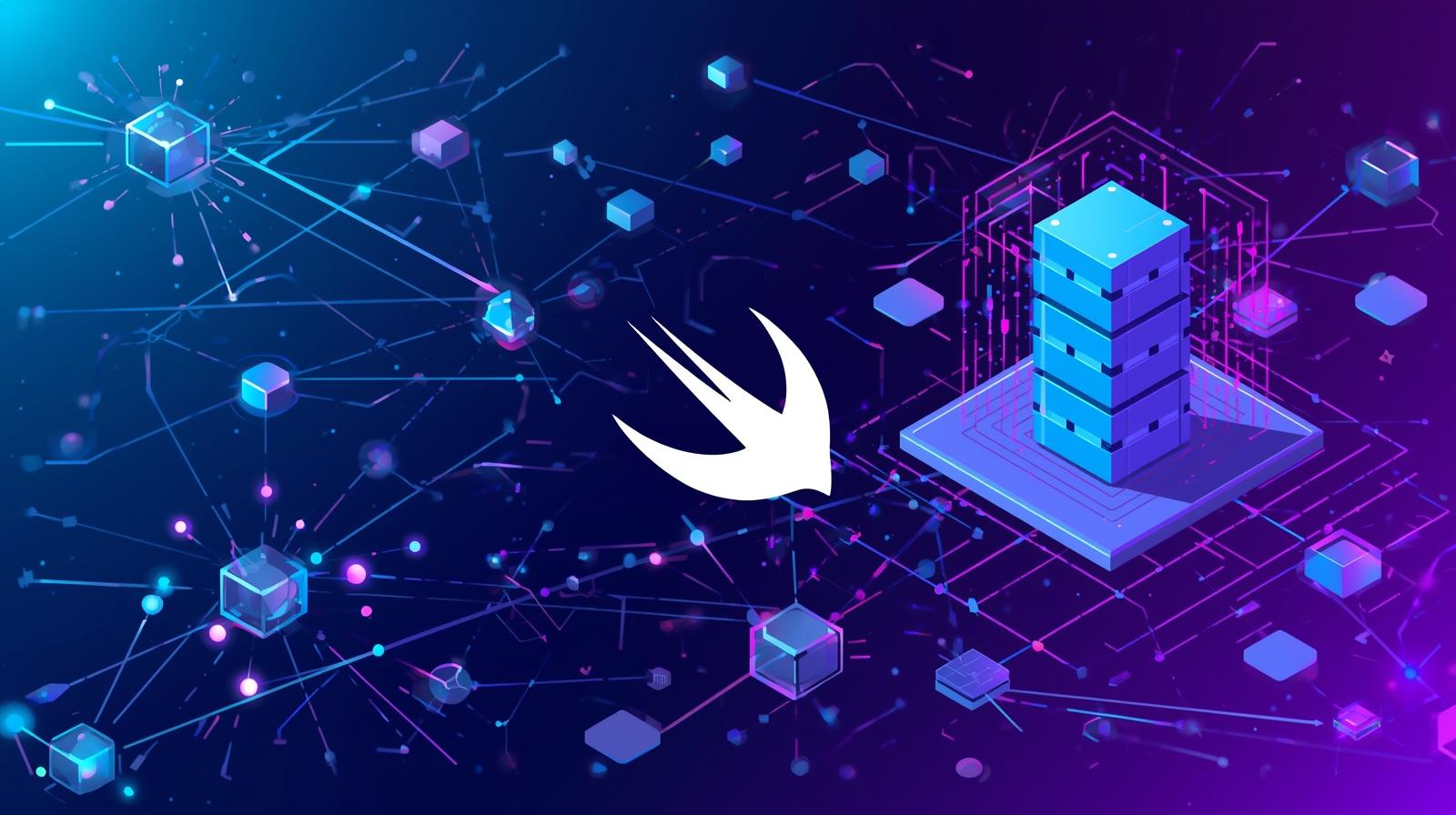The global financial network SWIFT and more than 30 leading banks are collaborating on a blockchain-based ledger for global payments and digitization. This is a groundbreaking example of how traditional financial players are adopting blockchain.

At the heart of the collaboration is a blockchain-based ledger that will enable fast, 24-hour, secure and transparent cross-border payments in real time. The solution also facilitates the digitization of finance on a global level. Chainlink delivers critical technology to ensure integration between the SWIFT network and the blockchain.
One of SWIFT's greatest strengths is its extensive global network already used by more than 11,000 banks in over 200 countries and territories. The network ensures that trillions of dollars are transferred daily between banks and today forms the very backbone of international financial communications. This puts SWIFT in a unique position to build on existing infrastructure and connect it with the digital finance solutions of the future.
SWIFT has traditionally been a messaging protocol that ensures communication between banks, but has not had support for actual digital transactions in the system. Banks have therefore had to reconcile the SWIFT messages with the actual financial transactions in their own systems.
Integration with the blockchain will enable a more seamless and efficient payment process, expanding SWIFT's traditional messaging system into a digital, tokenized structure for transferring value. The new blockchain solution will simultaneously safeguard SWIFT's core values of trust, security, robustness and compliance, while enabling faster and continuous settlement of payments around the clock.
Chainlink, which is a decentralized oracle network, plays a central role in SWIFT's commitment to blockchain technology by providing critical infrastructure for secure connectivity between the SWIFT network and both public and private blockchains. Through Chainlink's Cross-Chain Interoperability Protocol (CCIP), SWIFT will be able to integrate blockchain-based transactions seamlessly with its existing messaging network, enabling over 11,000 banks globally to conduct tokenized value transfers efficiently and securely.
This integration enables SWIFT members to connect blockchain-based wallets directly to payment messages, use smart contracts to validate and manage transactions, and conduct settlements for tokenized assets such as currency, bonds and stocks with greater speed and transparency. Chainlink thus ensures that SWIFT can embrace tokenization and decentralized financial services, while maintaining the core values of trust, security and regulatory compliance.
Now, major banks from around the world are teaming up with SWIFT to develop a blockchain-based ledger built for the payment services of the future. Over 30 financial institutions are participating in the project, which aims to introduce real-time, 24-hour cross-border payments. The first step is a prototype developed by Consensys, where banks from 16 different countries are already contributing design input and testing.
The ambition is to underpin increased efficiency, transparency and accessibility — characteristics that are fundamental to an increasingly global payment system.
The ledger should be a secure, regulatory-verifiable and traceable log of transactions between banks. SWIFT's role will be to deliver the infrastructure that allows regulated, tokenized value to be moved across digital ecosystems. Which tokens, digital assets or forms of currency are adopted are decided in cooperation between banks and regulatory authorities, while SWIFT facilitates technological and practical interaction.
An important feature of the new solution is that it is built for interoperability: it should be able to integrate with both existing and emerging payment networks. Transactions will be validated and ordered through smart contracts, which also automate regulatory enforcement. SWIFT has announced that it will launch solutions and tools to connect today's fiat-based systems with blockchain platforms. This should ensure synchronized, efficient transactions across private and public networks — regardless of technology or geographic affiliation.